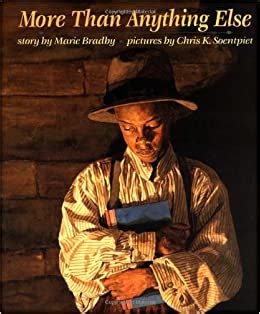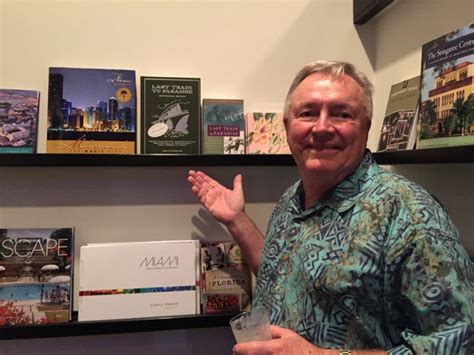Top 105 Manuscripts Quotes & Sayings - Page 2
Explore popular Manuscripts quotes.
Last updated on April 17, 2025.
No strict schedule, but I write nearly daily in my journal. Sometimes I go back and pull out things to give to my characters and my settings in books that I write. But the books themselves are not scheduled. I work on a book when it comes to me, usually about one a year. I spend a lot of time working on it in my head. But getting it published is another matter. So, I have a lot of unpublished manuscripts.
A number of years ago, when I had an exhibition of my work, the people in charge who came to pick up my manuscripts saw them piled up haphazardly in the garage and were shocked. 'What? They'll grow mold like this!' they said. People who do things properly apparently make a dedicated manuscript room, where they can control humidity.
Religious truth is captive in a small number of little manuscripts which guard the common treasures, instead of expanding them. Let us break the seal which binds these holy things; let us give wings to truth that it may fly with the Word, no longer prepared at vast expense, but multitudes everlastingly by a machine which never wearies to every soul which enters life.
What havoc has been made of books through every century of the Christian era? Where are fifty gospels, condemned as spurious by the bull of Pope Gelasius? Where are the forty wagon-loads of Hebrew manuscripts burned in France, by order of another pope, because suspected of heresy? Remember the 'index expurgatorius', the inquisition, the stake, the axe, the halter and the guillotine.
To refer even in passing to unpublished or struggling authors and their problems is to put oneself at some risk, so I will say here and now that any unsolicited manuscripts or typescripts sent to me will be destroyed unread. You must make your way yourself. Why you should be so set on the nearly always disappointing profession is a puzzling question.
I still love books. Nothing a computer can do can compare to a book. You can't really put a book on the Internet. Three companies have offered to put books by me on the Net, and I said, 'If you can make something that has a nice jacket, nice paper with that nice smell, then we'll talk.' All the computer can give you is a manuscript. People don't want to read manuscripts. They want to read books. Books smell good. They look good. You can press it to your bosom. You can carry it in your pocket.
I worked in the mail room at CAA when I was in high school. I worked in the literary department, too. That was my after school job, believe it or not: I would read manuscripts and then evaluations on whether or not I thought they'd make good movies. Which was fascinating and kind of hilarious to me at the time.
I guess I'm what you call a slush-piler. I just sent my manuscripts to the slush pile of publishers and hoped for the best. Over seven years, I was rejected seven times on three different books. The fourth attempt was picked up by a small publisher, and I still have great memories of staying up all night, talking to my brother and sisters (my dad called me at 2:30 in the morning because I was overseas).
Nevertheless, hateful as saying 'No' always is to an imaginative person, and certain as the offence may be that it will cause to individuals whose own work does not require isolated effort, the writer who is engaged on a book must learn to say it. He must say it consistently to all interrupters; to the numerous callers and correspondents who want him to speak, open bazaars, see them for 'only' ten minutes, attend literary parties, put people up, or read, correct and find publishers for semi-literate manuscripts by his personal friends.
In the usual way I submitted manuscripts to publishers. This was not so much a feeling that I should be published as a wish to escape the feared and hated drudgery of "normal" work. In my twenties some of my work for children was published by Macmillan. However, I was twenty-seven before my adult novel, The Birthgrave, was taken by DAW Books in the USA. This enabled me finally to stop doing stupid and soul-killing jobs, and start working day and night as a professional writer. It felt like a rescue from damnation, and still does.
Then began an experience that turned my life around-working on a book with a black kid as hero. None of the manuscripts I'd been illustrating featured any black kids-except for token blacks in the background. My book would have him there simply because he should have been there all along. Years before I had cut from a magazine a strip of photos of a little black boy. I often put them on my studio walls before I'd begun to illustrate children's books. I just loved looking at him. This was the child who would be the hero of my book.
I sold my first short story while I was home on maternity leave, then began working on novels. Since I was reading and enjoying romance novels at the time, the first two unpublished manuscripts I wrote were both romances. I sold my third novel, 'Call After Midnight,' to Harlequin Intrigue after submitting it unagented.
Seek wisdom in books, rare manuscripts, and cryptic poems if you will, but seek it out also in simple stones, and fragile herbs, and in the cries of wild birds. Listen to the whisperings of the wind and the roar of water if you would discover magic, for it is here that the old secrets are preserved.
By virtue of the standing and prestige of President Ben-Zvi, some 3,000 manuscripts originating from Arab lands, some of them of major significance, have been deposited at the Ben-Zvi Institute. In contrast to the Aleppo Codex, most of these documents were donated willingly, in the confidence that the institute would protect and preserve them.
Believe not because some old manuscripts are produced, believe not because it is your national belief, believe not because you have been made to believe from you childhood, but reason truth out, and after you have analyzed it, then if you find it will do good to one and all, believe it, live up to it and help others live up to it.
Maybe it's because we as writers are alone so often, are so attuned to listening to the run of our own thoughts, that we find it more natural to write down the thoughts rather than the deeds of our characters. But speaking as a teacher who has spent some twenty years slogging through manuscripts where thoughts and exposition pile up as thick as the aftermath of a California mudslide, I can attest to the power of the evocative detail, gesture, or figment of speech.
Just about everything significant in my life happened after I passed forty. I was a housewife and mother, but yearned to be a writer. I worked at my writing whenever I could snatch a moment, and I assembled several manuscripts. I was just about forty when my first novel, East Wind, West Wind, was published. Then a few months later came The Good Earth. My career was launched at last, and it has given me the richest possible satisfaction
We have the Annunciation, the Conception, the Birth and the Adoration, as described in the first and second chapters of Luke's gospel; and as we have historical assurance that the chapters in Matthew's gospel which contain the miraculous birth are an after addition not in the earliest manuscripts, it seems probable that these two poetical chapters in Luke may also be unhistorical, and borrowed from the Egyptian accounts of the miraculous births of their kings.
Today there survives more than 25,0000 partial and complete, ancient handwritten manuscript copies of the New Testament. These hand written manuscripts have allowed scholars and textual critics to go back and verify that the Bible we have in our possession today is the same Bible that the early church possessed 2,000 years ago.
Will a day come when the race will detect the funniness of these juvenilities and laugh at them—and by laughing at them destroy them? For your race, in its poverty, has unquestionably one really effective weapon—laughter. Power, Money, Persuasion, Supplication, Persecution--these can lift at a colossal humbug,—push it a little— crowd it a little—weaken it a little, century by century: but only Laughter can blow it to rags and atoms at a blast. Against the assault of Laughter nothing can stand. - "The Chronicle of Young Satan," Mysterious Stranger Manuscripts
Great nations write their autobiographies in three manuscripts the book of their deeds, the book of their words, and the book of their art. Not one of these books can be understood unless we read the two others; but of the three, the only quite trustworthy one is the last. The acts of a nation may be triumphant by its good fortune; and its words mighty by the genius of a few of its children: but its art, only by the general gifts and common sympathies of the race.
I see manuscripts and books that are spoiled for the literary reader because they are one long stream of top-of-the-head writing, a writer telling a story without concern for precision or freshness in the use of language. Some of this storytelling reads as if it were spoken rather than written, stuffed with tired images that pop into the writer's head because they are so familiar. The top of the head is fit for growing hair, but not for generating fine prose.
The most obvious – and easiest! – way to gain perspective is to put your work away for a while.
The truth is, we don’t know how taking a break frees up the mind, but it does: Somehow it freshens our little neurons, or perhaps it prompts the brain to create more cleverness molecules.
If you can bear to let a short piece sit a week and a book-length work a month, do so. Longer is fine, too; some authors have abandoned manuscripts for years before unearthing them and realizing, ‘Hey, this isn’t bad,’ and renewing their energy for the project.
Publishing is no longer simply a matter of picking worthy manuscripts and putting them on offer. It is now as important to market books properly, to work with the bookstore chains to getterms, co-op advertising, and the like. The difficulty is that publishers who can market are most often not the publishers with worthy lists.
My love for my children makes me glad that I am what I am, and keeps me from desiring to be otherwise; and yet, when I sometimes open a little box in which I still keep my fast yellowing manuscripts, the only tangible remnants of a vanished dream, a dead ambition, a sacrificed talent, I cannot repress the thought, that after all I have chosen the lesser part, that I have sold my birthright for a mess of pottage
I never wavered in my certainty that God did not exist. I was simply liberated by the thought that there might be a way to engage with religion without having to subscribe to its supernatural content - a way, to put it in more abstract terms, to think about Fathers without upsetting my respectful memory of my own father. I recognized that my continuing resistance to theories of an afterlife or of heavenly residents was no justification for giving up on the music, buildings, prayers, rituals, feasts, shrines, pilgrimages, communal meals and illustrated manuscripts of the faiths.
But when I say it isn't meant for anyone's eyes, I don't mean it in the sense of one of those novel manuscripts people keep in a drawer, insisting they don't care if anyone else ever reads it or not.The people I have known who do that, I am convinced, have no faith in themselves as writers and know, deep down, that the novel is flawed, that they don't know how to tell the story, or they don't understand what the story is, or they haven't really got a story to tell. The manuscript in the drawer is the story.
Cut like crazy. Less is more. I've often read manuscripts - including my own - where I've got to the beginning of, say, chapter two and have thought: “This is where the novel should actually start.” A huge amount of information about character and backstory can be conveyed through small detail. The emotional attachment you feel to a scene or a chapter will fade as you move on to other stories. Be business-like about it.












































